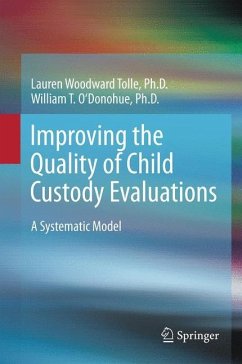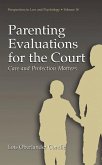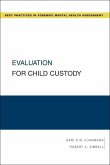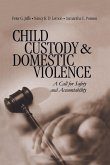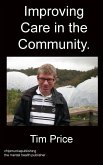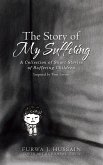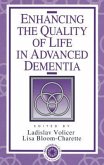This book resolves a key problem that all evaluators need toattend to:, i.e., what constructs ought to be measured?, all the while givingthem practical ways of doing this. It alsopresents data showing family court judges like the model, and it does this fairly briefly but in a waythat is nicely embedded in the research literature.
"The book Improving the Quality of Child Custody Evaluations: A Systematic Model by Tolle and O'Donohue provides a useful summary of what relevant factors to consider, based on empirical work on the effects of divorce on children, and how relevant and valid data can be obtained to inform a decision, for example, with the help of psychological tests...
An interesting part of the book is its review of empirical work on the effects of divorce: Tolle and O'Donohue discuss its effects on children's psychological well-being, family well-being, socioeconomic well-being, self-concept, social competence, and physical health problems. However, there is a lack of critical discussion of the causal inferences that can be drawn from such work. Several alternative explanations usually are pertinent, such as genetic ones (Kennair, 2003; Paris, 2000).
The extensive discussions of psychometric properties of various instruments such as psychological tests are probably useful to a practitioner, but they tend to be somewhat dull reading. The authors stress the importance of impression management in assessments for custody evaluations, in which much tends to be at stake for the parents. This is a very difficult problem in many applications of psychometric methods (Griffith & Peterson, 2006)...
This book should be a useful reference to psychologists working on custody cases. The reviews of research on effects of divorce on children and on the validity of methods used in custody assessments are useful. Furthermore, there is clearly a need for structuring information in such cases and integrating it as objectively as possible. The authors should be applauded for the attempt to develop a scientifically based methodology for child custody evaluations, and future research should be conducted to assess its value in practical work." -- Reviewed by Lennart Sjöberg
PsycCRITIQUES, May 29, 2013, Vol. 58, Release 22, Article 6
An interesting part of the book is its review of empirical work on the effects of divorce: Tolle and O'Donohue discuss its effects on children's psychological well-being, family well-being, socioeconomic well-being, self-concept, social competence, and physical health problems. However, there is a lack of critical discussion of the causal inferences that can be drawn from such work. Several alternative explanations usually are pertinent, such as genetic ones (Kennair, 2003; Paris, 2000).
The extensive discussions of psychometric properties of various instruments such as psychological tests are probably useful to a practitioner, but they tend to be somewhat dull reading. The authors stress the importance of impression management in assessments for custody evaluations, in which much tends to be at stake for the parents. This is a very difficult problem in many applications of psychometric methods (Griffith & Peterson, 2006)...
This book should be a useful reference to psychologists working on custody cases. The reviews of research on effects of divorce on children and on the validity of methods used in custody assessments are useful. Furthermore, there is clearly a need for structuring information in such cases and integrating it as objectively as possible. The authors should be applauded for the attempt to develop a scientifically based methodology for child custody evaluations, and future research should be conducted to assess its value in practical work." -- Reviewed by Lennart Sjöberg
PsycCRITIQUES, May 29, 2013, Vol. 58, Release 22, Article 6

